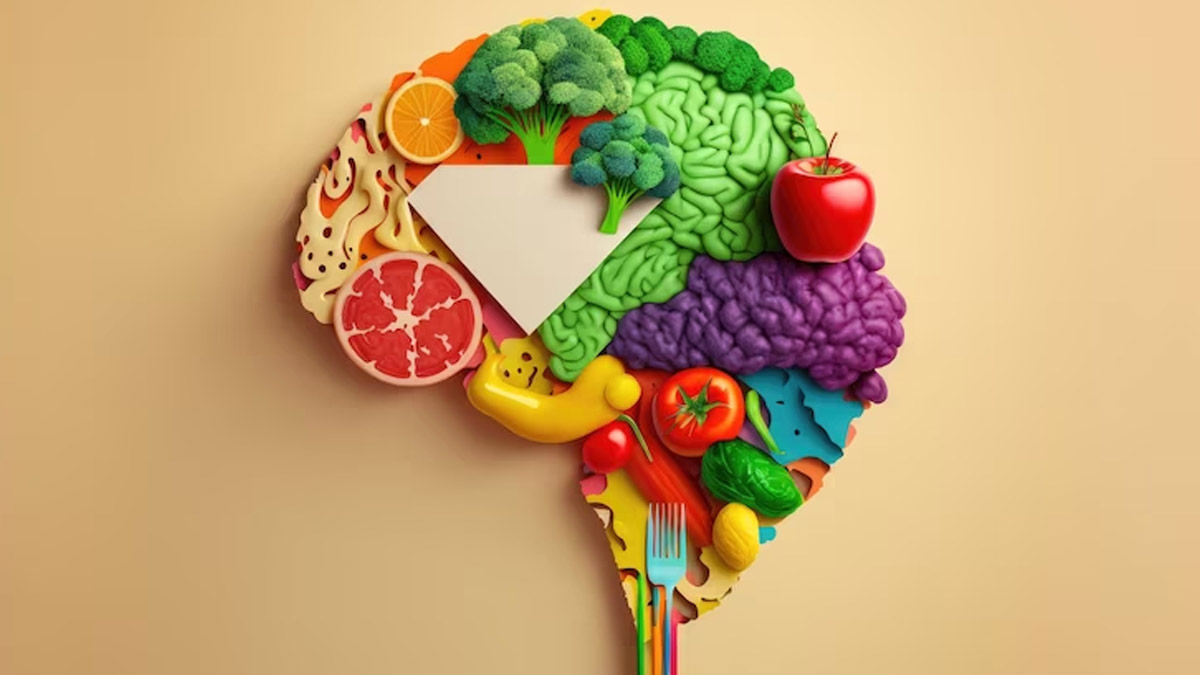
Mental health is an essential aspect of overall well-being, and it is affected by various factors, such as genetics, environment, and lifestyle choices. One lifestyle choice that has a significant impact on mental health is diet. What we eat plays a crucial role in determining how we feel and function daily. In this article, we will explore the impact of what we eat on our mental health.
Table of Content:-
On the occasion of World Health Day 2023, OnlyMyHealth has organised a week-long campaign, "You Are What You Eat". In this special series, we will talk about the physical, mental, and emotional impact of what we eat on our health. Let's discuss the significance of what we eat on our mental health.
The Gut-Brain Connection
The gut-brain connection refers to the relationship between the digestive system and the brain. The gut contains millions of neurons that communicate with the brain through the nervous system. This communication is bidirectional, meaning that the brain can affect the gut, and the gut can affect the brain. Therefore, what we eat can have a significant impact on our mental health.
The Microbiome
The microbiome refers to the community of microorganisms that live in the gut. These microorganisms play a crucial role in maintaining gut health and overall well-being. Research has shown that the microbiome can also affect mental health. Studies have found that people with certain mental health conditions, such as depression and anxiety, have an imbalance in their gut microbiome. Therefore, maintaining a healthy microbiome through a balanced diet can have a positive impact on mental health.

Also read: World Health Day 2023: Impact Of What You Eat On Your Physical Health
The Impact of Macronutrients On Our Mental Health
Macronutrients are the nutrients that our bodies need in large quantities. They include carbohydrates, proteins, and fats. Each macronutrient has a different impact on mental health.
Carbohydrates
Carbohydrates are the primary source of energy for the body and the brain. They are broken down into glucose, which is used by the brain to fuel its functions. However, not all carbohydrates are created equal. Simple carbohydrates, such as those found in sugar and refined grains, can cause spikes in blood sugar levels, which can lead to mood swings and energy crashes. On the other hand, complex carbohydrates, such as those found in whole grains and vegetables, are digested slowly, providing a steady source of energy and preventing mood swings.
Proteins
Proteins are essential for the growth and repair of the body's tissues. They also play a crucial role in the production of neurotransmitters, which are the chemicals that transmit signals in the brain. Low levels of neurotransmitters, such as serotonin and dopamine, have been linked to depression and anxiety. Therefore, consuming adequate amounts of protein can help maintain optimal levels of neurotransmitters.
Fats
Fats are essential for the absorption of vitamins and minerals, the production of hormones, and the maintenance of cell membranes. Omega-3 fatty acids, in particular, have been linked to improved mental health. Studies have found that people who consume more omega-3 fatty acids have a lower risk of depression and other mental health conditions.

Also read: World Health Day 2023: Impact Of What You Eat On Your Physical Health
The Impact of Micronutrients On Our Mental Health
Micronutrients are the nutrients that our bodies need in smaller quantities. They include vitamins and minerals. Each macronutrient has a different impact on mental health.
Vitamins
Vitamins are essential for the proper functioning of the body's systems. They also play a crucial role in mental health. For example, vitamin D has been linked to improved mood, and low levels of vitamin B12 have been linked to depression and other mental health conditions.
Minerals
Minerals are essential for the proper functioning of the body's systems. They also play a crucial role in mental health. For example, low levels of magnesium have been linked to depression and anxiety.
In conclusion, we are what we eat since what we eat has a significant impact on our mental health. Maintaining a healthy diet that is rich in complex carbohydrates, proteins, and healthy fats, as well as essential vitamins and minerals, can help improve mood and overall well-being.
Also watch this video
How we keep this article up to date:
We work with experts and keep a close eye on the latest in health and wellness. Whenever there is a new research or helpful information, we update our articles with accurate and useful advice.
Current Version
